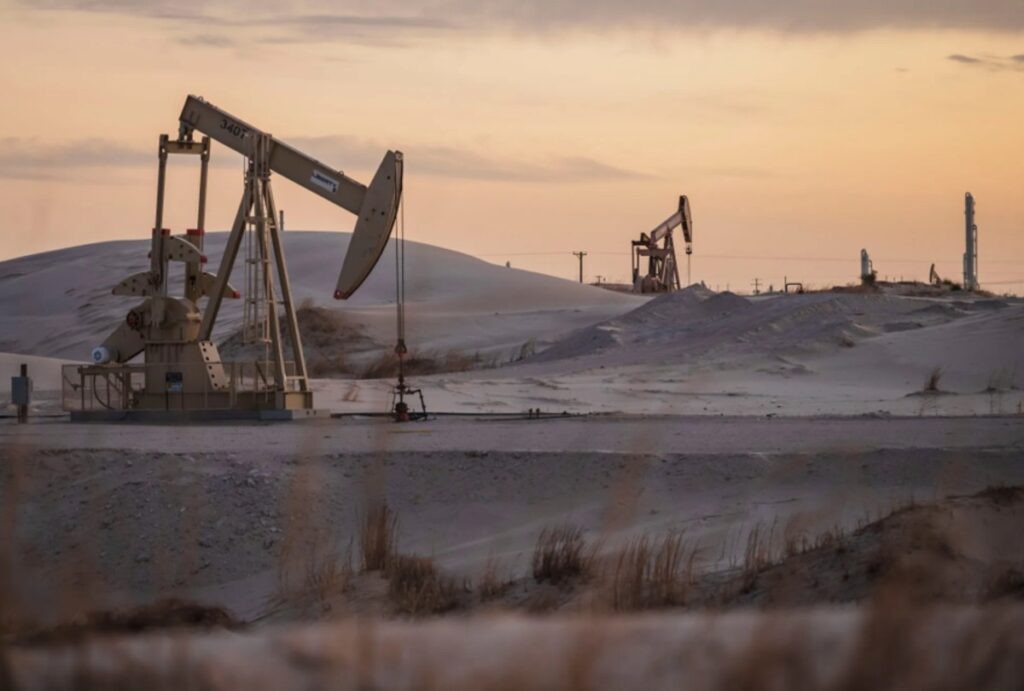By Nicole Jao

- Trump expressed optimism about reaching a trade deal with Europe
- US issues new sanctions on Chinese importers of Iranian oil
- Iraq, Kazakhstan, others to cut output further in OPEC plan
NEW YORK, April 17 (Reuters) – Oil prices settled more than 3% higher on Thursday, supported by hopes for a trade deal between the United States and the European Union and new U.S. sanctions to curb Iranian oil exports, which continued to elevate supply concerns.
Brent crude futures settled $2.11, or 3.2%, higher to $67.96 a barrel, and U.S. West Texas Intermediate crude gained $2.21, or 3.54%, at $64.68 a barrel.
For the week, both Brent and WTI gained about 5%, their first weekly gain in three weeks. Thursday is the last settlement day of the week ahead of the Easter holidays and trade volumes were thin.
U.S. President Donald Trump and Italian Prime Minister Giorgia Meloni met in Washington and expressed optimism about resolving trade tensions that have strained U.S.-European relations.
“We’re going to have very little problem making a deal with Europe or anybody else, because we have something that everybody wants,” Trump said.
Reaching a trade deal with the EU could potentially limit oil demand destruction from Trump’s tariffs, said Bob Yawger, director of energy futures at Mizuho.
Sanctions issued by Trump’s administration on Wednesday, including against a China-based “teapot” oil refinery, ramp up pressure on Tehran amid talks on the country’s nuclear programme. “Teapot” is an industry term for small, independent and simple oil refiners.
“These are far-ranging sanctions, focusing on the Chinese teapot refineries,” said John Kilduff, partner with Again Capital. “It’s a potential supply loss to the market.”
Washington also issued additional sanctions on several companies and vessels it said were responsible for facilitating Iranian oil shipments to China as part of Iran’s shadow fleet.
“The U.S. continues to aggressively sanction Iran and impose sanctions against buyers of Iranian oil. OPEC+ has also provided updates and reassurance to the market, stating that they remain in control with flexibility to cut production if needed,” analysts at energy consulting firm Gelber and Associates said in a note.
The Organization of the Petroleum Exporting Countries (OPEC) said on Wednesday it had received updated plans for Iraq, Kazakhstan and other countries to make further output cuts to compensate for pumping above quotas.
However, OPEC, the International Energy Agency and several banks, including Goldman Sachs and JPMorgan, cut forecasts on oil prices and demand growth this week as U.S. tariffs and retaliation from other countries threw global trade into disarray.
Reporting by Nicole Jao in New York, Enes Tunagur in London and Florence Tan in Singapore; Editing by David Evans and Chris Reese, Kirsten Donovan, Diane Craft and Nia Williams
Share This:




 CDN NEWS |
CDN NEWS |  US NEWS
US NEWS 



























What Excites and Worries LNG Exporters in 2026: Maguire